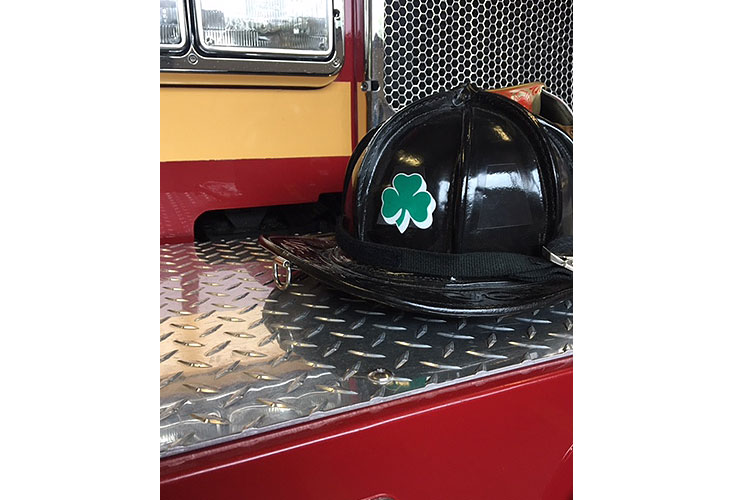
By David DeStefano
Is it better to be lucky or good? It all depends on the stakes and the odds. In the fire service, the stakes may be life or death and the odds of riding a lucky streak throughout an entire career are pretty slim. I would wager that any firefighter would have better odds of returning safely to his or her family by working to be good, or maybe the best. Imagine telling a loved one that you rely solely on good luck to come home safely at the end of each shift.
Firefighters must work diligently throughout their career to become a master of the skills required in their assignment and those that may be required by new studies and scientific data. To ensure a firefighter remains current in knowledge and well-practiced in skills, an individual commitment is required, as is the full support and resources of the fire department in which the firefighter works. The organization should establish a framework that supports individual firefighters with access to quality training and education at venues inside and out of the department.
Whatever the level of organizational support each firefighter has a responsibility to themselves, their brother and sister firefighters, and their families to prepare for work to the fullest extent possible, and operate prudently during incident operations and routine activities. Over the course of a long career, how does a firefighter remain challenged and motivated to not only remain aware of the emerging trends and updated practices in the fire service, but continue to practice skills and avoid hazardous “shortcuts” around the safest policies and practices?
Value those around you. Whatever your rank or position, understand that the members working with you have the right to expect your best effort. Your preparation and attention will be key to their success and ultimately their safety. Working as a team, we need the maximum effort from every member to operate to best advantage. A firefighter who is well educated, strives for perfection, and maintains excellent situational awareness is a huge asset to any operation.
Be an interested and inquisitive firefighter. Take the time to attend lectures and classes outside your comfort zone. Listen to the new ideas and evaluate the emerging scientific studies. Review the well-vetted training material available in print an online. After you fully understand the data, you will be in a much better position to assess the application of a new concept in your fire department. As a firefighter who is aware of the latest research and newer applications of our tactical options, your reliance on luck decreases and your odds of a successful outcome for your entire crew will increase.
Prepare for the next step. To rely on skill over luck, all members should prepare themselves for the next level in the chain of command. Not only is this prudent in case a higher-ranking member is sidelined during an incident, but planning for the next rank or position helps ensure a firefighter will be prepared to face new challenges immediately, when given the opportunity. Looking at the responsibilities of the next rank provides a member the opportunity to broaden their level of strategic or tactical thinking. Enhancing critical thinking skills can be just as important as practicing hose stretches. As firefighters progress in their careers, the ability to assess situations with the application of the latest fire science combined with street-wise experience will prove an invaluable asset that doesn’t rely on being lucky.
Sharing knowledge works both ways. As a firefighter gains knowledge and experience, one of the best ways to ensure an effective team is to share with other firefighters. The fire service has a proud tradition of mentoring our members and passing along institutional knowledge to successive generations. What many members forget is that sharing knowledge doesn’t only flow from a senior firefighter to a junior member. The senior firefighter or officer should always be aware of the talent and experience surrounding him or her. The experience a firefighter may have gained in a previous assignment or the knowledge they may possess from an educational or technical background may help support their current incident strategies. Using all the human assets available to leverage our equipment to its best advantage will greatly increase the likelihood of a successful incident outcome, with all firefighters returning home safely.
Mastering our skills and maintaining currency in the latest scientific research and equipment options is a career-long process. Although we can never be certain what challenges may unfold during our next incident, we can be sure that the more effort we apply to preparation, the less we will rely on blind luck.
 David DeStefano is a battalion chief for the North Providence (RI) Fire Department (NPFD), where he has served for 28 years. He is also the NPFD’s chief of safety and training. He was previously the captain of Ladder Co. 1, where he also served as a lieutenant and firefighter. Additionally, he was assigned as a lieutenant in Engine 3. DeStefano is an instructor/coordinator with the Rhode Island Fire Academy and lectures on fire service topics throughout Southern New England. He was also an FDIC International 2017 presenter. DeStefano can be reached at dmd2334@cox.net.
David DeStefano is a battalion chief for the North Providence (RI) Fire Department (NPFD), where he has served for 28 years. He is also the NPFD’s chief of safety and training. He was previously the captain of Ladder Co. 1, where he also served as a lieutenant and firefighter. Additionally, he was assigned as a lieutenant in Engine 3. DeStefano is an instructor/coordinator with the Rhode Island Fire Academy and lectures on fire service topics throughout Southern New England. He was also an FDIC International 2017 presenter. DeStefano can be reached at dmd2334@cox.net.
- The Rookie Officer
- What is a “Routine” Fire?
- Residential Roof Operations
- “Fools Rush in Where Angels Fear to Tread”

